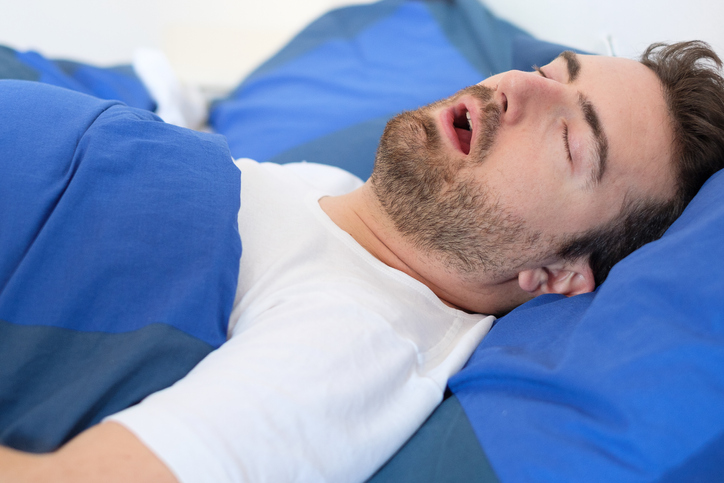Oral Appliances 101: How They Work to Alleviate Snoring and Sleep Apnea

Introduction to Sleep Disorders and Their Impact on Health
In today’s fast-paced world, a good night’s sleep has never been more crucial for our health and well-being. Yet, for millions, restful sleep remains elusive, primarily due to sleep disorders such as sleep apnea and snoring. These conditions not only disrupt sleep but can significantly impact overall health, leading to fatigue, cardiovascular issues, and more. At Gateway Center for Sleep Apnea & TMJ Therapy, we understand the critical role of healthy sleep patterns and offer innovative solutions to manage these disorders. Today, we will explore how oral appliances can effectively alleviate snoring and sleep apnea, ensuring you wake up feeling refreshed and ready to tackle the day.
Understanding Sleep Apnea and Snoring
Sleep apnea and snoring are not just disturbances to a peaceful night; they are indicators of deeper health issues that can have long-term consequences if left unaddressed. Sleep apnea comes in three main varieties: Obstructive Sleep Apnea (OSA), the most common form, occurs when the muscles in the back of the throat fail to keep the airway open, despite efforts to breathe. Central Sleep Apnea (CSA) involves the brain not sending proper signals to the muscles that control breathing. Lastly, Complex Sleep Apnea Syndrome is a combination of both OSA and CSA, presenting a particularly challenging condition to manage.
Snoring, on the other hand, while often a symptom of OSA, can also occur independently. It happens when the flow of air through the mouth and nose is physically obstructed, which can be due to various factors including the anatomy of your mouth, obesity, or even the position of your tongue.
The health implications of untreated sleep apnea extend far beyond mere daytime fatigue. Individuals suffering from sleep apnea are at an increased risk for a range of serious health issues, including high blood pressure, stroke, heart failure, diabetes, and depression. This underscores the importance of seeking professional evaluation and treatment for any sleep-related disorders.
An Overview of Oral Appliances for Sleep Apnea and Snoring
Oral appliances offer a breath of fresh air for those struggling with sleep apnea and snoring, providing an effective and user-friendly alternative to CPAP machines. These devices come in two primary forms: Mandibular Advancement Devices (MADs) and Tongue Retaining Devices (TRDs). MADs work by gently moving the lower jaw (mandible) forward, which in turn opens up the airway. TRDs, alternatively, hold the tongue in a forward position to prevent it from blocking the airway during sleep.
What sets oral appliances apart is their design and function. Tailored to the individual, these devices are custom-fitted to ensure maximum effectiveness and comfort. This bespoke approach contrasts with the one-size-fits-all nature of many over-the-counter solutions, providing a significant advantage in the management of sleep disorders.
The Benefits and Limitations of Using Oral Appliances
Oral appliances boast several benefits that make them an attractive option for many patients. Their ease of use is a significant plus; there are no hoses, masks, or noisy machines to contend with. This simplicity, coupled with their comfort and compact size, makes oral appliances especially appealing for travelers or those who find CPAP machines cumbersome or intrusive.
Moreover, the discreet nature of oral appliances means they can be used without drawing attention, supporting a more natural sleep experience. They’re also easy to care for, requiring simple cleaning routines without the need for special equipment.
However, it’s important to recognize the limitations and potential side effects. Some patients may experience jaw discomfort, bite changes, or increased salivation when first using the device. Additionally, while highly effective for mild to moderate sleep apnea and snoring, oral appliances may not be suitable for everyone, particularly those with severe sleep apnea.
How to Get Started with Oral Appliances
Embarking on treatment with oral appliances begins with a thorough evaluation by a dental professional with expertise in sleep disorders. This step is crucial to ensure that your sleep apnea or snoring can be effectively managed with an oral appliance. At Gateway Center for Sleep Apnea & TMJ Therapy, Dr. Postol and our team specialize in diagnosing these conditions and crafting a personalized treatment plan.
Choosing the right oral appliance involves considering various factors, including the severity of your condition, your mouth’s anatomy, and your personal preferences. We offer both custom-fit and select over-the-counter options, guiding you towards the best choice for your unique needs. Following selection, we will customize your device for a perfect fit, ensuring comfort and efficacy.
Adapting to your new oral appliance may take a short period, during which we will support you with tips for adjustment and care. Regular follow-ups will allow us to monitor your progress and make any necessary adjustments, ensuring that you receive the maximum benefit from your treatment.
By addressing sleep apnea and snoring with an oral appliance, you’re taking a significant step towards better health and quality of life. With our expertise and your commitment, a restful night’s sleep is within reach.
Taking the Next Steps Towards Restful Sleep
Addressing sleep disorders such as snoring and sleep apnea is not just about improving sleep quality; it’s about enhancing your overall health and quality of life. With the right approach and treatment, including the use of oral appliances, you can enjoy the restorative sleep you deserve. If you’re experiencing symptoms of sleep apnea or snoring, we invite you to schedule a consultation with Dr. Postol and our team at Gateway Center for Sleep Apnea & TMJ Therapy. Together, we can find a solution that works for you, helping you sleep better and live better.
